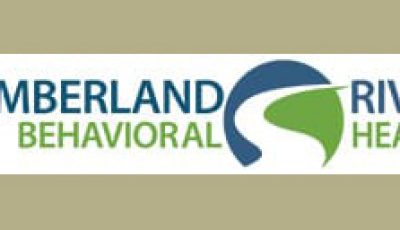Cumberland River Behavioral Health lands $3.8 million grant
Federal officials recently awarded a Southeastern Kentucky Community Mental Health Center nearly $4 million in grant funding to become a Certified Community Behavioral Health Center (CCBHC).
Cumberland River Behavioral Health (CRBH) Inc., which is headquartered near Corbin and serves an eight-county region, has been awarded a $3,802,431 total grant that will be distributed over a four-year period for “crisis hub services,” according to a notice of award sent to the agency on Sept. 28.
“Because of this funding, CRBH will be able to provide mental health and substance use services to residents in ways that will decrease disparities that residents currently experience. The project will include a 24/7 place to have their mental health and substance use needs assessed, a 23-hour crisis stabilization center located many miles from other crisis facilities, physical health screenings and education, and expanded crisis line services to include chat and text. Additionally, outreach specific to veterans will be completed,” the grant application reads in part.
Because of the increased services under the crisis hub, the project is expected to reduce admission rates to state mental health hospitals, which have only a limited number of beds.
Goals of the project include providing a greater number of quality mental health and substance use services thereby increasing quality of life, and saving lives through expanded crisis line services.
Another aspect of the grant includes physical health screenings because people with behavioral health disorders are at high risk for chronic physical health disorders, such as diabetes and heart disease.
The grant is available through the Substance Abuse and Mental Health Services Administration (SAMHSA), which is an agency within the U.S. Department of Health and Human Services (HHS) that leads public health efforts to advance the behavioral health of the nation and to improve the lives of individuals living with mental and substance use disorders and their families.
SAMHSA’s mission is to reduce the impact of substance use and mental illness on America’s communities.
“I am excited and honored to receive this SAMHSA CCBHC expansion grant. Cumberland River Behavioral Health has served residents of our region for over 50 years. With the addition of these funds we have an opportunity to offer more comprehensive services to our communities,” said Cumberland River Behavioral Health Inc. Executive Director/CEO Melanie Yeager.
The project will be located in the Cumberland Valley Area Development District counties of Rockcastle, Laurel, Clay, Jackson, Bell, Harlan, Knox and Whitley, which have a combined population of more than 230,000 people. Nearly half of the residents residing in the 3,214 square-mile service region fall below the poverty level.
“CRBH has been providing quality mental health, substance use disorder, and intellectual/developmental delays services in these eight counties for over 50 years. With 11 outpatient offices and four residential facilities, close to 13,000 services are provided annually,” according to the grant application.
“With this project, CRBH will be able to serve 600 residents the first year, 900 residents the second year, 1,000 the third year, and 1,100 the fourth year for a total of 3,600 residents during the grant cycle.”
CRBH will receive $971,577 during the first year of the grant cycle, $954,090 during the second year of the grant cycle, and $938,382 during each of the third and fourth years of the grant cycle.
The first year of the grant cycle started on Oct. 1, 2022.
Community mental health centers are community-based facilities or groups of facilities that provide prevention, treatment, and rehabilitation mental health and substance disorder services. This grant program will enable those centers to more effectively address the needs of individuals who have a serious emotional disturbance (SED) or serious mental illness (SMI), as well as individuals with SED or SMI and substance use disorders, referred to as a co-occurring disorder (COD).
According to data from the U.S. Centers for Disease Control and Prevention (CDC), from August 2020 through February 2021, the percentage of adults with recent symptoms of an anxiety or a depressive disorder increased from 36.4 percent to 41.5 percent, and the percentage of those reporting an unmet mental health care need increased from 9.2 percent to 11.7 percent.







